Last updated: 30 November 2023
The Chichibu Night Festival in Chichibu is among the three largest and most well-known festivals, together with the Gion Matsuri in Kyoto and the Takayama Festival in Hida.
All across Japan, interesting festivals are held throughout the year. Often holding great significance within the local culture, they are an important part of Japanese society, regardless of the scale.
Taking place in Saitama Prefecture’s Chichibu area, the “Chichibu Night Festival” is an important part of Japan’s historical culture. In 2016 it was registered as a UNESCO Intangible Cultural Heritage as “Chichibu Festival Yatai and Kagura.”
Ancient History of the Chichibu Night Festival
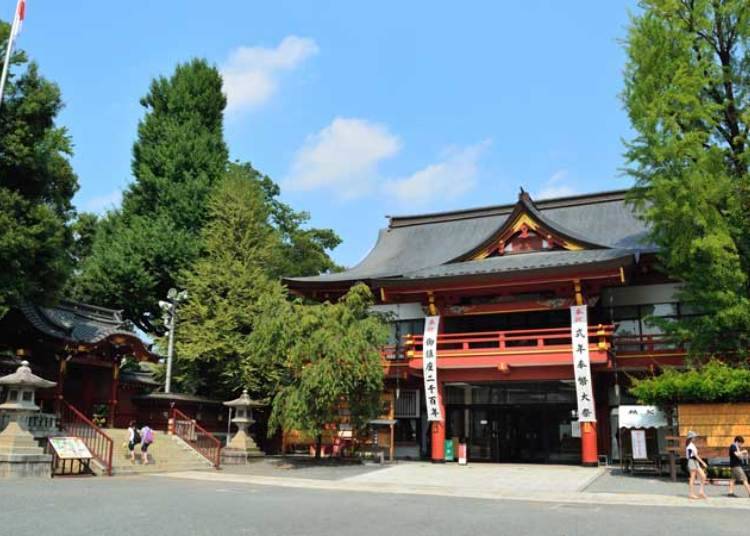
Provided by Chichibu Tourism Association
The Chichibu Night Festival has been held annually for over 300 years, with records showing some parade floats dating back to 1716–1736. During the Edo period, Chichibu, known as “Silk City” (Kinu no Takamachi), thrived economically alongside the festival.
The shrine, founded by Chichibuhiko no Mikoto, is said to have originated the worship of Mt. Buko. Legend also credits him with teaching silk weaving to the local community.
Held annually on December 2 and 3, the festival marks the year’s final celebration for Chichibu residents. Historically, it coincided with the end of farming and firewood gathering for winter.
Known simply as the “Night Festival” or “Winter Festival,” the event features a grand parade of floats and spectacular fireworks, drawing many visitors. In 2018, approximately 280,000 people attended the two-day celebration.
Gorgeous Floats (Dashi)
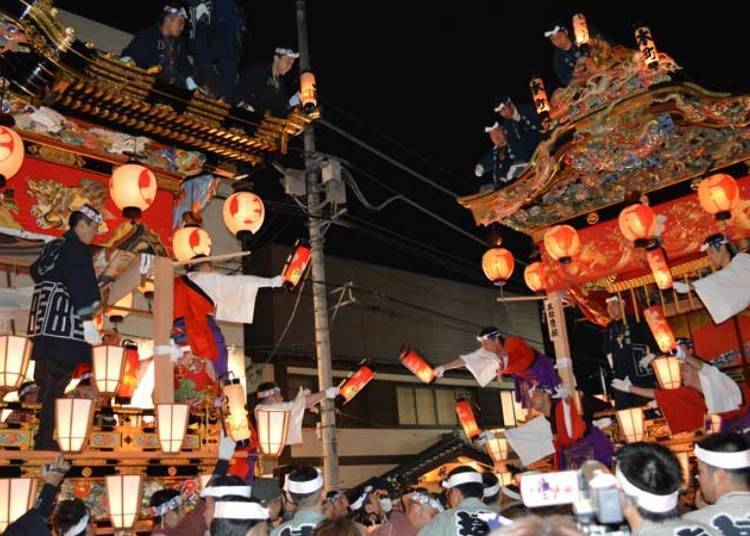
Provided by Chichibu Tourism Association
On December 2, known as “Yoimiya,” four floats (Miyaji, Kamimachi, Nakamachi, and Honmachi) begin parading through the main streets of the city center from the morning. Watching them maneuver past each other without colliding is truly impressive!
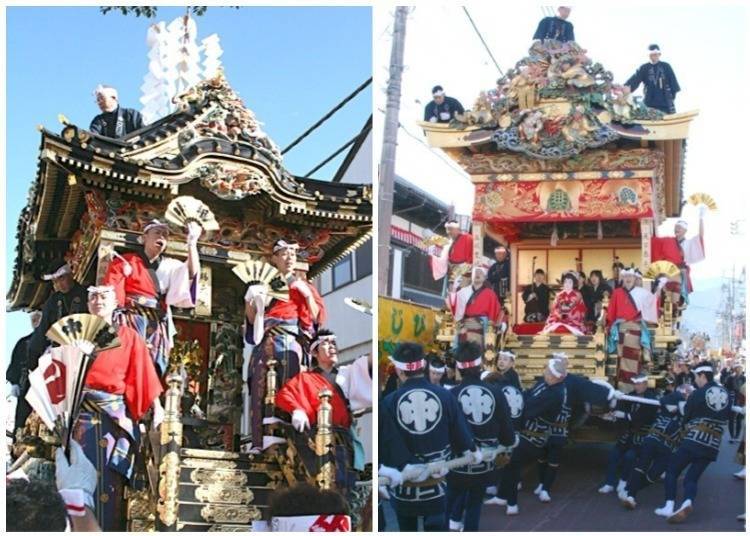
Provided by Chichibu Tourism Association
The floats are divided into two types: “Kasaboko” and “Yatai.” Kasaboko feature large umbrellas adorned with countless ornamental flowers, though these umbrellas have not been used in parades since 1914 due to the installation of overhead power lines. Yatai, on the other hand, are outfitted with curtains and stages designed for Kabuki performances.
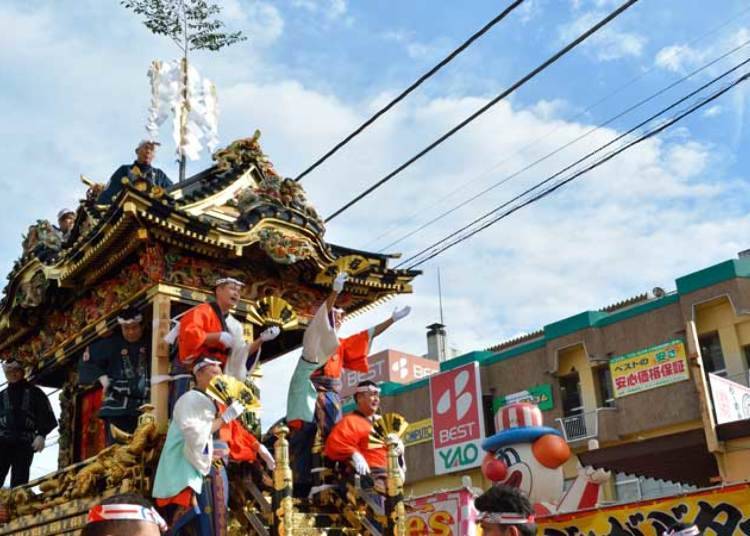
Provided by Chichibu Tourism Association
On December 3, known as “Hongu” or the “Great Festival,” four floats parade as they did the previous day, joined by two more ornate floats often referred to as “moving Yomeimon,” named after the famous gate of Nikko Toshogu Shrine. These floats, designated as national tangible folk cultural properties, are truly a must-see!
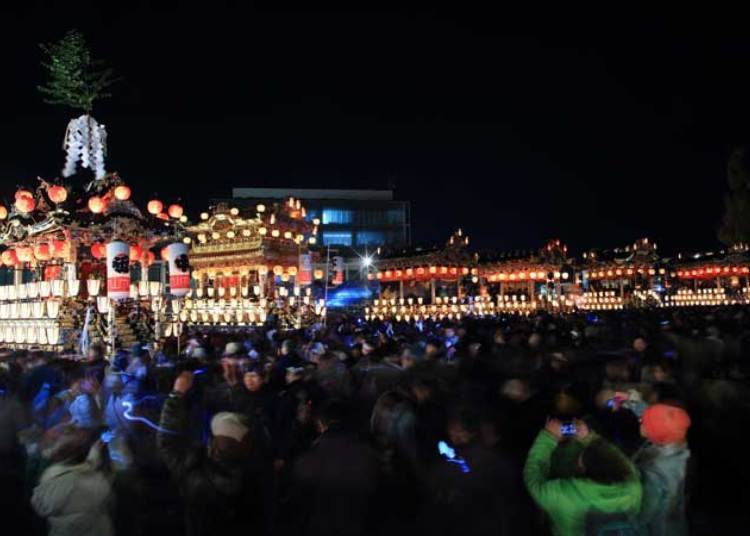
Provided by Chichibu Tourism Association
At night, the floats are illuminated by glowing lamps, creating a dazzling spectacle. A key highlight is the performance of the hayashite—musicians who play from atop the floats.
Around 7 PM, the floats depart from Chichibu Shrine, with the festival reaching its peak at 10 PM when they arrive at the Otabisho (event site).
A famous legend tied to the Chichibu Night Festival tells of a once-a-year tryst between Mt. Buko’s snake god, Zao Gongen, and Chichibu Shrine’s goddess, Myoken Bosatsu. Their meeting at the Otabisho is shrouded in tradition. To avoid offending Zao Gongen’s wife, Yasakatome-no-kami of Suwa Shrine, the hayashite pause their performance as the floats pass Suwa Shrine in a ritual known as “Suwa Watari” (“Suwa Crossing”).
Unique “Stall Kabuki”
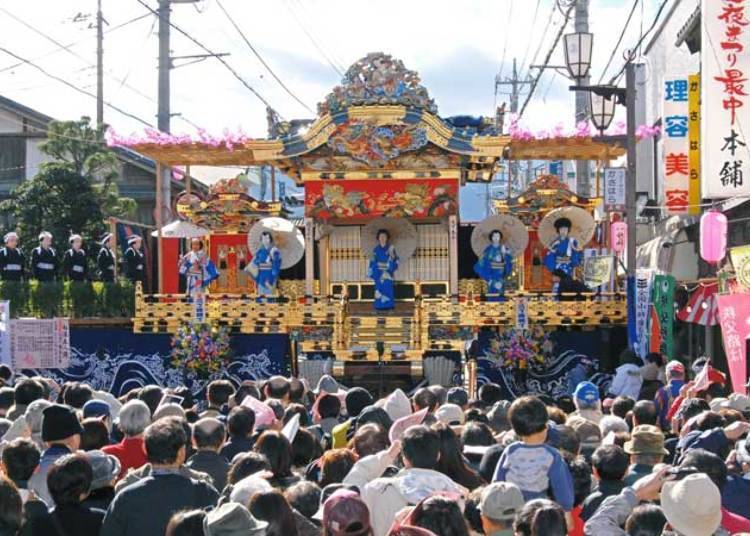
Provided by Chichibu Tourism Association
At the Chichibu Night Festival, there are performances such as “Whisper Dance” and “Yatai Kabuki” dedicated to nagauta – traditional songs. Yatai Kabuki is performed on the four different floats. For performances, an overhanging stage and additional stage pieces are added to the front and sides of the floats to create a wide, temporary theater.
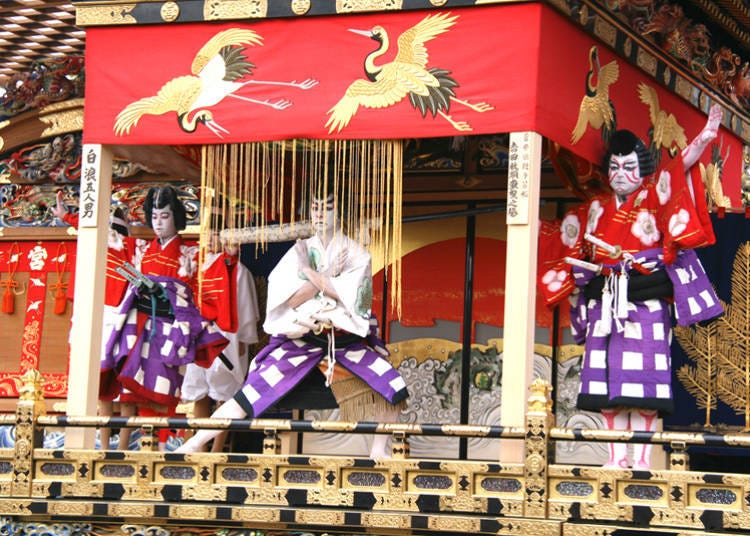
Provided by Chichibu Tourism Association
The performance features Edo Kabuki, characterized by realistic productions based on the life of the common people. This style of performance and the temporary stages are rare in Japan, and the skill involved in stage preparation and the kabuki performance is a must-see.
Massive Fireworks Festival that Colors the Night
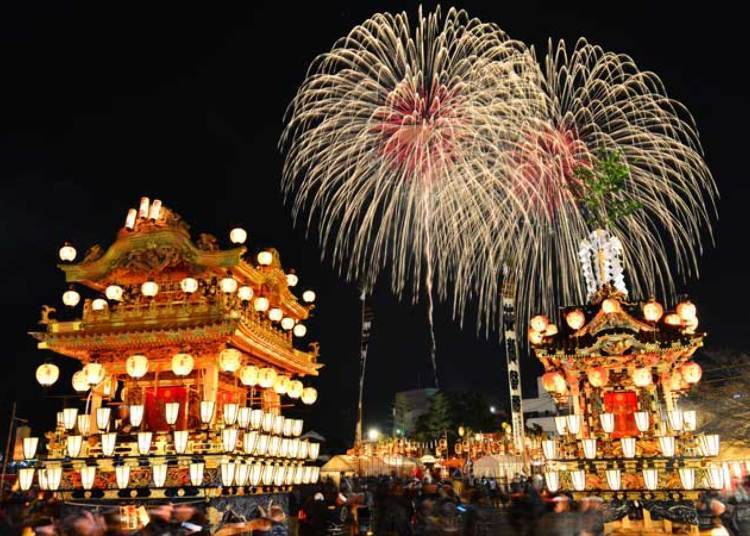
Provided by Chichibu Tourism Association
Co-starring in the festival and some of the most impressive aspects of the Chichibu Night Festival, are the fireworks that dye the night sky and the light of the lanterns on the floats. This is one of the largest fireworks festivals in Japan, and one of the few held in winter.
In recent years, the show has become even more gorgeous. The combination of beautifully illuminated floats and vivid fireworks, including the “star mine,” huge flower-like “shakudama” blooms, and the “golden waterfall” are a must-see!
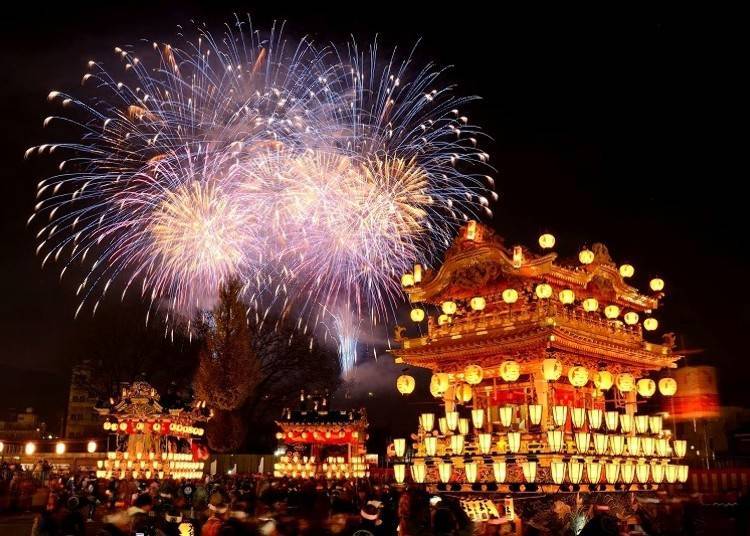
Provided by Chichibu Tourism Association
Because the festival area is small, the fireworks are best seen from rooftops in Chichibu city or places with a more open view of the sky, such as in front of Seibu Chichibu Station.
Access: How to get to the Chichibu Night Festival from Tokyo
To reach Chichibu City by train, head to Seibu Chichibu Station on the Seibu Chichibu Line. The limited express Laview Red Arrow from Ikebukuro Station takes as little as 78 minutes.
From Tokyo or Shinjuku stations, travel to Ikebukuro Station via JR or Tokyo Metro, then take a Seibu Railway express train to Seibu Chichibu.
-

-
Address
Chichibu-shi, Saitama Banba 1-3, 368-0041
View Map
-
Nearest Station
Chichibu Station (Chichibu Railway)
3 minutes on foot
-
Phone Number
0494-22-0262
-
Address
Recommended Accommodations for the Chichibu Night Festival
Below are top-rated accommodations in Chichibu to enjoy convenient access to the vibrant floats, fireworks, and festivities of the Chichibu Night Festival. Be sure to book accommodations early, as they tend to fill quickly.
(* This article was originally published in August 2019 with information as of November 2024 added.)
*This information is from the time of this article’s publication.
*Prices and options mentioned are subject to change.
*Unless stated otherwise, all prices include tax.






















Discussion about this post